
 Flash News
Flash News
9 months after taking office, the Chief of the Guard, Ermal Onuzi, resigns
He breaks arrest, steals a car and escapes like in a movie, the serial thief from Tirana is caught!
Name/ She deceived clients and took their money, the lawyer is wanted
Criminal group busted, trafficking dogs from Spain to Finland, the 'heads' of the group were Albanians
She escaped drowning in Durres, the 31-year-old English woman speaks: We capsized instantly, my friend was trapped under the vehicle
How has the implementation of immigration law in the EU evolved during 2024/ Here are how many Albanians were refused entry

Over 120,000 non-EU nationals were refused entry in 2024, a number that has barely budged since the pandemic, while voluntary and forced returns have increased by 20%.
According to the latest Eurostat figures, the number of citizens found illegally present in EU countries in 2024 decreased by 27.4%.
Germany, France and Italy together represented more than half of all third-country nationals found illegally present in the EU last year.
Nearly 57% of the rejections occurred at land crossings, mainly at the Polish, Croatian and Romanian borders.
Air borders handled 39.8% of rejected passengers, with France alone turning back 7,800 people.
Meanwhile, only 3.4% of total refusals were at sea borders. Italy reported the highest number of refusals at EU sea borders, followed by France.
The largest number of people who were refused entry to the EU in 2024 was recorded for Ukrainians, Albanians and Moldovans.
Ukrainian citizens who were refused entry to the EU mainly tried to cross the land borders with Poland and Romania. These individuals did not benefit from temporary protection.
Most Albanian citizens were denied entry at the Greek, Croatian, Hungarian and Lithuanian land borders, or at the Italian air and sea borders.
Meanwhile, most Moldovans were denied entry at the Romanian, Polish, and Latvian land borders.
Almost 50% of entry refusals were explained by unjustified purpose or conditions of stay, and lack of a valid visa or residence permit.
Returns of third-country nationals
The number of returned third-country nationals increased by 19.3%, compared to the previous year.
Georgian citizens were subject to the highest number of returns to the EU, with 11,585 of them returned to a third country.
They were followed by Turks (7,910), Albanians (7,810) and Moldovans (4,970).
53.8% of returns to third countries were voluntary, while 46.2% were forced.
In Denmark, Lithuania, Latvia and the Czech Republic, more than 90% of third-country nationals returned voluntarily. Only Italy reported all returns as forced returns./ Euronews.
Latest news




Baçi: Rama was afraid of popular discontent, stole more votes than he thought
2025-06-03 22:10:14


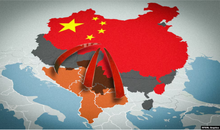

9 months after taking office, the Chief of the Guard, Ermal Onuzi, resigns
2025-06-03 20:14:09

15-year-old injured by gunfire at 'Ali Demi' pizzeria, police arrest perpetrator
2025-06-03 19:32:04

Why don't I want to spend a single day in Vlora?!
2025-06-03 18:26:21
Tech-stinction alert: Will humanity shrink to just 100 million people?
2025-06-03 18:02:23
EPP accepts Berisha's request: A fact-finding mission will be sent to Albania
2025-06-03 17:49:47
Three vehicles collide in Elbasan, several injured suspected
2025-06-03 17:45:02
Prosecutor Marsida Frashëri faces a request for dismissal at the KPA
2025-06-03 17:21:57
Nga Holanda në Finlandë, si operonte rrjeti shqiptar i drogës
2025-06-03 17:10:34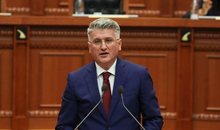

Tusk kërkon votëbesim në parlamentin polak më 11 qershor
2025-06-03 16:59:01


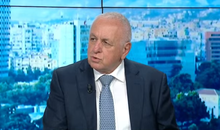



EUROPOL: Minors increasingly targeted by terrorist propaganda
2025-06-03 15:04:56
Kindergarten in Gramsh reopens where children were poisoned with salmonella
2025-06-03 14:59:16

OECD: Global economy heading for weakest growth since Covid-19
2025-06-03 14:35:26
A farm in Postribë, Shkodra, is quarantined, small livestock infected,
2025-06-03 14:21:50

74-year-old from Kamza, the oldest high school graduate in the English exam
2025-06-03 13:59:30
The average salary in Kosovo reached 639 euros in 2024
2025-06-03 13:49:00
Osmani invites parties to consult on the date of local elections
2025-06-03 13:41:33
Name/ She deceived clients and took their money, the lawyer is wanted
2025-06-03 13:25:24

He hit and killed a 59-year-old man and fled, the young man is wanted
2025-06-03 12:58:29
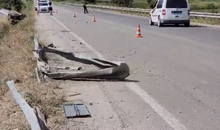
Two cars collide in Bulqiza, drivers injured
2025-06-03 12:34:46


15 people arrested for cyber fraud and misuse of bank cards in Gjilan
2025-06-03 12:02:41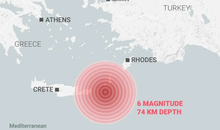
Greece and Turkey hit by earthquake
2025-06-03 11:49:08
Due to lack of lawyers/ The hearing for the 'Golden Bullet' is postponed again
2025-06-03 11:36:52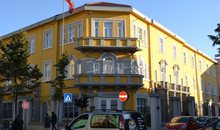

More than half of foreigners in Serbia are Russians
2025-06-03 11:15:59

Scandal repeats, English exam thesis leaked
2025-06-03 10:46:54


They printed fake logos of well-known brands, 4 arrested, two others wanted
2025-06-03 09:42:58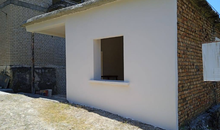
A verbal agreement by Rama prompted the contested interventions in Spaç
2025-06-03 09:23:32


Horoscope, what do the stars have in store for you today?
2025-06-03 08:34:30

Temperatures up to 31 degrees Celsius, weather forecast for this Tuesday
2025-06-03 08:09:06
Morning Post/ In 2 lines: What mattered yesterday in Albania
2025-06-03 07:51:10



Convinced DP candidate: Tirana district is opening, MPs' order changes
2025-06-02 21:42:53


Cara: At the head of the state is a party that was not voted for by Albanians
2025-06-02 21:16:53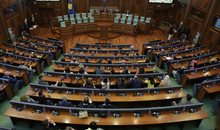
The constitution of the Kosovo Assembly fails for the 25th time
2025-06-02 21:10:46
"130 thousand unused ballots", CEC responds to the DP
2025-06-02 20:51:02
Italian professor who insulted Giorgia Meloni's daughter attempts suicide
2025-06-02 20:25:21
Fire breaks out in a building in Astir
2025-06-02 20:22:46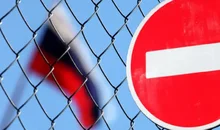


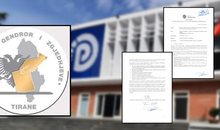

Two women threaten the Saranda prosecutor in her office
2025-06-02 19:09:20
Etna wakes up again, the most active volcano in Europe erupts
2025-06-02 19:00:36



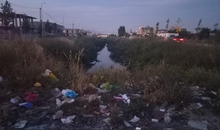
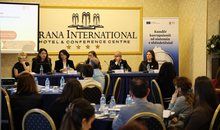


Fire reactivates in Darëzeza forest, firefighting efforts impossible
2025-06-02 17:28:29

Cultivating cannabis on a plot, 35-year-old arrested in Mirdita
2025-06-02 16:59:27

Switzerland/ Albanian caught with drugs worth over 1 million euros
2025-06-02 16:50:38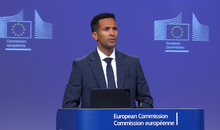
Kosovo-Serbia dialogue meetings resume in Brussels
2025-06-02 16:32:44
The VPN Era in Albania: How the TikTok Ban is "Failing", Video Views Increase
2025-06-02 16:26:36
Mahmut Orhan brings a unique experience with Curious X
2025-06-02 16:19:55

Businesses "forgot" to pay for elections, liabilities reached 4.7 billion lek
2025-06-02 15:50:27
Photo/ Caught with cocaine, Albanian arrested in Britain
2025-06-02 15:31:12
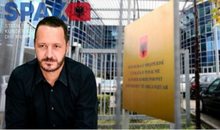

He violently opposed police officers, 39-year-old arrested in Vlora
2025-06-02 15:04:28


